this week your invitation to nourishment
the importance of psychological emotional agility in menopause
the application of Zen Philosophy ‘skinbag’ in menopause
honouring transition truthfully
trusting and listening within
finding purpose
practices to regain confidence
a book recommendation
Before perimenopause and the pandemic, I had always been a confident, self-assured person. As a wellness advocate, yoga teacher, and coach. I always felt in tune with my body and capable of navigating any challenges that came my way. I trusted my ability to balance my physical health, emotional well-being, and professional life. But everything changed when the world around us began to shift dramatically during the second part of the pandemic—and I started my journey into perimenopause.
Suddenly and until very recently to be honest, I found myself feeling unsure and disconnected from the confident person I once was. The hormonal changes from perimenopause, combined with the stress of living through a global crisis and changing my work left me feeling uncertain, vulnerable and having terrible bouts of anxiety as well as fear. My mind and body no longer feeling like it was under my control. The hot flashes, the sleepless nights, and the sudden mood swings made me question my ability to cope. I felt overwhelmed and, at times, powerless. My once-strong sense of confidence took a real dip it was during this time that l decided to take a pause from teaching and healing others, instead turning the mirror onto myself.
Emotional Agility in Menopause: Navigating Change with Grace
Menopause is a profound transition—physically, mentally, and emotionally. With shifting hormones often comes a rollercoaster of moods, energy fluctuations, and moments of self-doubt. This is where emotional agility becomes essential. Rather than resisting these changes or feeling trapped by them, emotional agility allows us to acknowledge our feelings without being consumed by them.
Psychologist Susan David describes emotional agility as the ability to experience emotions fully while staying flexible in our responses. In menopause, this means recognising frustration, sadness, or anxiety as natural responses to change—not as roadblocks, but as signals. By meeting these emotions with curiosity instead of judgment, we can make empowered choices about our well-being, whether through movement, breath work, lifestyle shifts, or simply giving ourselves more compassion.
Menopause isn’t just an ending but instead a doorway to a new phase of strength, wisdom, and self-awareness. And when we cultivate emotional agility, we move through it with resilience, grace, and confidence and a new dawn awaits you.
- Salema Veliu
So lets get clear about some of the definitions of both confidence and resilience.
Confidence: Is that feeling you get when you trust yourself to handle things. It’s having your own back, knowing your stuff, whether it’s taking on a challenge, speaking up, or just being yourself without second-guessing. Confidence is that quiet belief that you can do it, even when things get tough.
Resilience: Is the ability to bounce back when life knocks you down. It's not about never feeling knocked down, but getting back up and finding your way forward, no matter how many setbacks you face. Trying to stay open and positive even in the most challenging of instances.
Confidence isn’t about knowing it all—it’s about trusting yourself to navigate the unknown. Resilience comes from adapting and growing through challenges, not avoiding them. And emotional agility? Well that’s the ability to recognise, understand, and regulate emotions without being controlled by them. Psychologist Susan David describes it as “the skill to engage with emotions flexibly, allowing us to make thoughtful choices rather than reacting impulsively”. When we develop confidence, resilience, and emotional agility together, we don’t just withstand life’s challenges—we can grow from them.
Adapting to Change: How the Pandemic and Perimenopause Shaped My Teaching
It was during the second part of the pandemic, combined with the onset of perimenopause, that threw me into a period of confusion and self-doubt. My energy was low, and the emotional toll of both challenges made it difficult to keep up with the demands of teaching. I found myself struggling to stay motivated and connect with my students in the way I had before. The physical changes of perimenopause left me feeling disconnected from my body, while the isolation of the pandemic made it harder to find any sense of normalcy. I felt overwhelmed and out of place, unsure of how to fit my own needs into the demands of my role as a teacher.
Adapting with Intention: Listening to My Body and Mind, and Using the Psychology of Seeing to Envision a Different Life
After two decades of teaching, I knew it was time to take a step back and try something different. I recognised that I needed a break to recharge and explore other areas of interest. So, I revisited my background in vision science and psychology, and started working in clinical ophthalmology and optical settings. This shift allowed me to blend my passion for wellness with my professional expertise, creating a new perspective that enriched both my personal growth and my teaching approach. It was a refreshing change that reignited my passion and helped me reconnect with a new sense of purpose.
Understanding the Hormonal Shifts: The Science of Perimenopause and Menopause
As my body began transitioning through perimenopause, the science behind what was happening became clearer. The hormonal fluctuations—particularly the decline in estrogen and progesterone—were causing physical changes I hadn’t anticipated. Muscle loss, bone density issues, and a significant drop in energy were just some of the challenges I faced. From a scientific perspective, these changes made me feel like I was losing my grip on the control I had once had over my health and especially my teeth!
In addition to the hormonal shifts, the pandemic's impact on my mental health was profound, especially at that time as l was on my own, without family or a partner, just my ducks, nature and my good neighbours. The isolation, the uncertainty, and the stress of adapting to a new way of life all compounded my feelings of anxiety and self-doubt. Moving into a new area just a few months before the pandemic struck I felt overwhelmed with no clear way out. My confidence plummeted, and it seemed like everything I had built in terms of self-trust was unraveling.
Reassessing My Health & Exercise routine: The Importance of Pilates, Strength and Yoga Conditioning
In addition to the emotional and mental toll, I began to realise that my body’s needs had changed. The once intense, dynamic yoga practices I had once relied on no longer felt supportive. Instead, I needed something less chaotic which led me to incorporate Pilates, strength training, yoga conditioning and yin yoga into my routine to support my body’s changing needs. Regaining control of my body without overexertion. They bring a much-needed sense of calm and centredness to my emotional agility.
Balancing Quiet Moments and Social Connection: Creating Harmony
During this journey, alongside my physical transformation, I realised the importance of balancing quiet moments with social interaction. During the pandemic, the isolation was intense. I found myself retreating inward, spending a lot of time in quiet reflection and journaling. Don’t get me wrong l do love spending time on my own however not quite the amount that was imposed on us. While this introspection helped me process some of the changes, it also reminded me of the importance of social connection. Something l had learn’t prior in one of my Neuroscience lectures, that humans brains are wired to be social and that it helps with longevity.
So despite my desire for solitude, I recognised that reconnecting with others was crucial for my mental health. Re-engaging with friends, family, as well as communities of women who are also navigating the challenges of perimenopause has helped me feel less isolated. Giving me a new found sense of connection, belonging and support.
Holistic and Scientific Approaches to Healing: Integrating Mind-Body Practices
Now I focus on nourishing my body with a diet rich in antioxidants, healthy fats, and protein, while essential oils like lavender and peppermint has brought me emotional balance. I also focused on breath work and zen practices to calm my racing thoughts and reduce the anxiety I was feeling. Combining these approaches allowed me to regain some of my confidence by actively nurturing both my body and mind.
Confidence Restored and The Role of the Zen Philosophy ‘skinbag’ in Menopause
Over time, as I embraced these practices and the changes in my body, I realised that my confidence wasn’t gone instead it had just transformed. The confidence I once had, rooted in certainty and control, evolved into a deeper sense of trust in the process of change. I understood that confidence doesn't mean always feeling strong or in control—it’s about trusting that you will figure it out, no matter what comes your way.
The Zen "skin bag" philosophy teaches that our body is just a temporary vessel—a shifting, impermanent form that we inhabit for a time. This idea becomes especially relevant during life transitions, like perimenopause, aging, or personal reinvention. When we cling too tightly to how things used to be—our past identities, youthful bodies, or fixed expectations—we create suffering. But when we see change as natural, just like the breath flowing in and out, we find freedom.
Instead of resisting transitions, we can meet them with curiosity and presence. The body shifts, emotions fluctuate, but our deeper self remains. By embracing impermanence, we let go of fear and step into each new phase with grace, resilience, and wisdom. After all, we are not just the skin bag—we are the awareness within it.
The Takeaway
By embracing and incorporating more Pilates, strength conditioning, Zen and balance between quiet moments and social connection, I’ve rebuilt my confidence on my own terms in a way that felt authentic to the new me. I no longer view menopause transition as something to fear or resist, but as an opportunity to redefine my strength and resilience.
Confidence isn’t about being the same person I was before—instead it’s about evolving and trusting that the changes happening within me are leading to something more empowered and aligned with who I am becoming.
Throughout this weird, wild and whacky ride, l have found the practices of: simplicity, structure and boundaries have cultivated a deeper sense of ease, empowerment and self-trust. Confidence doesn’t have to mean having all the answers; it’s about trusting the journey and knowing you will find your way eventually! And more importantly knowing that it’s ok not to know, thank you
.NOW!
Moving forward with new projects, like pursuing my Pilates Diploma and diving deeper into hormonal health coaching, l am rebuilding my confidence. These opportunities are pushing me to expand my knowledge, refine my skills, and embrace new challenges. Each step I take in these areas is not only enhancing my professional growth but also reigniting that sense of empowerment and self-belief I thought I had lost. As I continue to grow in these fields, I’m excited to share what I’ve learn’t and learning to inspire others.
Book Recommendation
Emotional Agility by Susan David




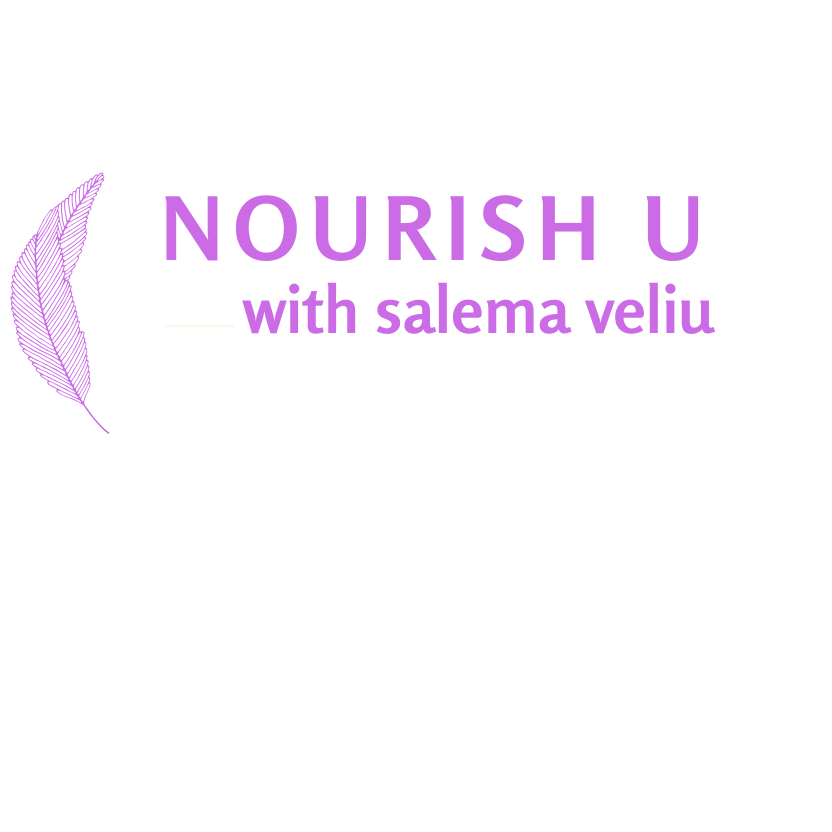
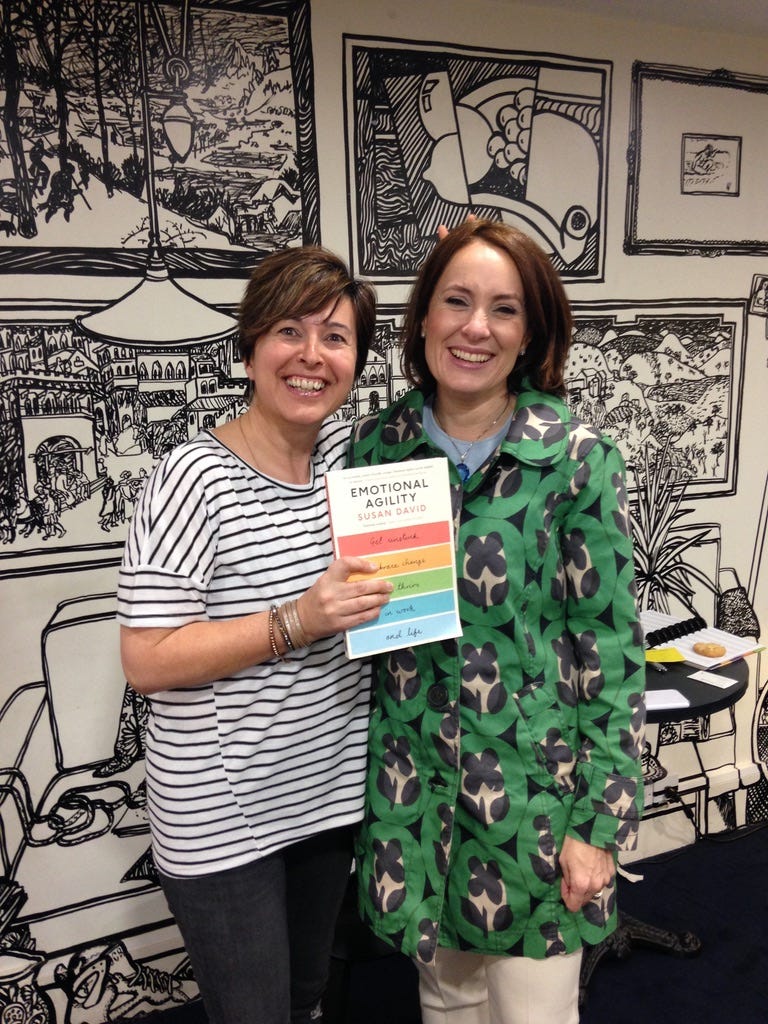

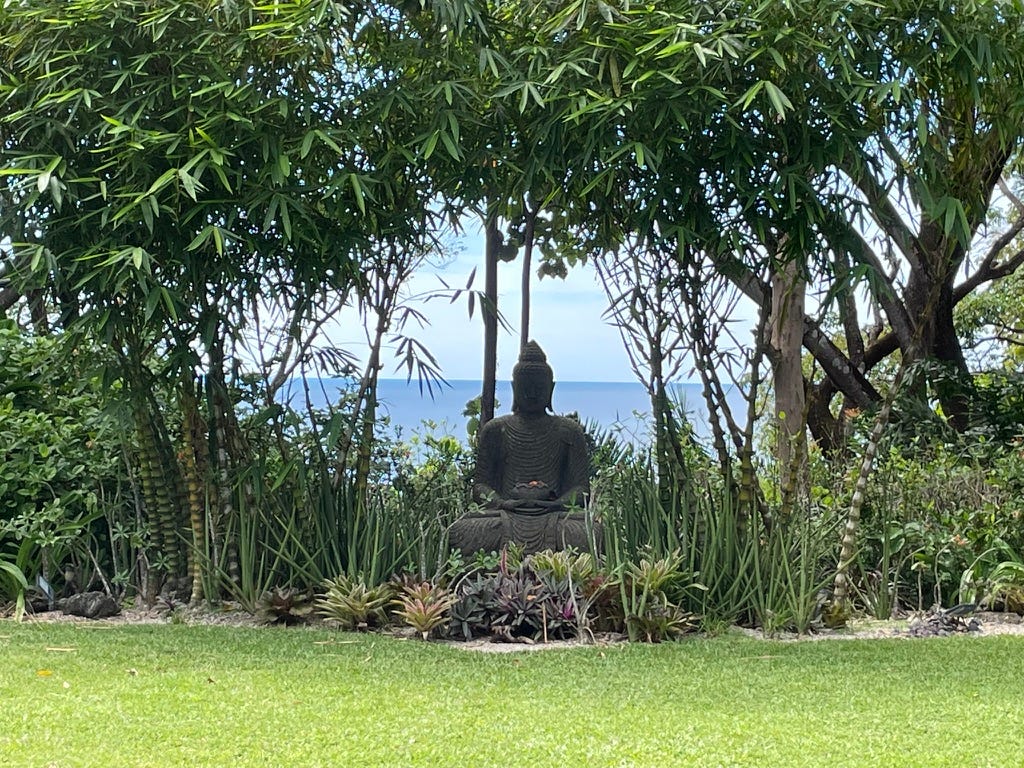
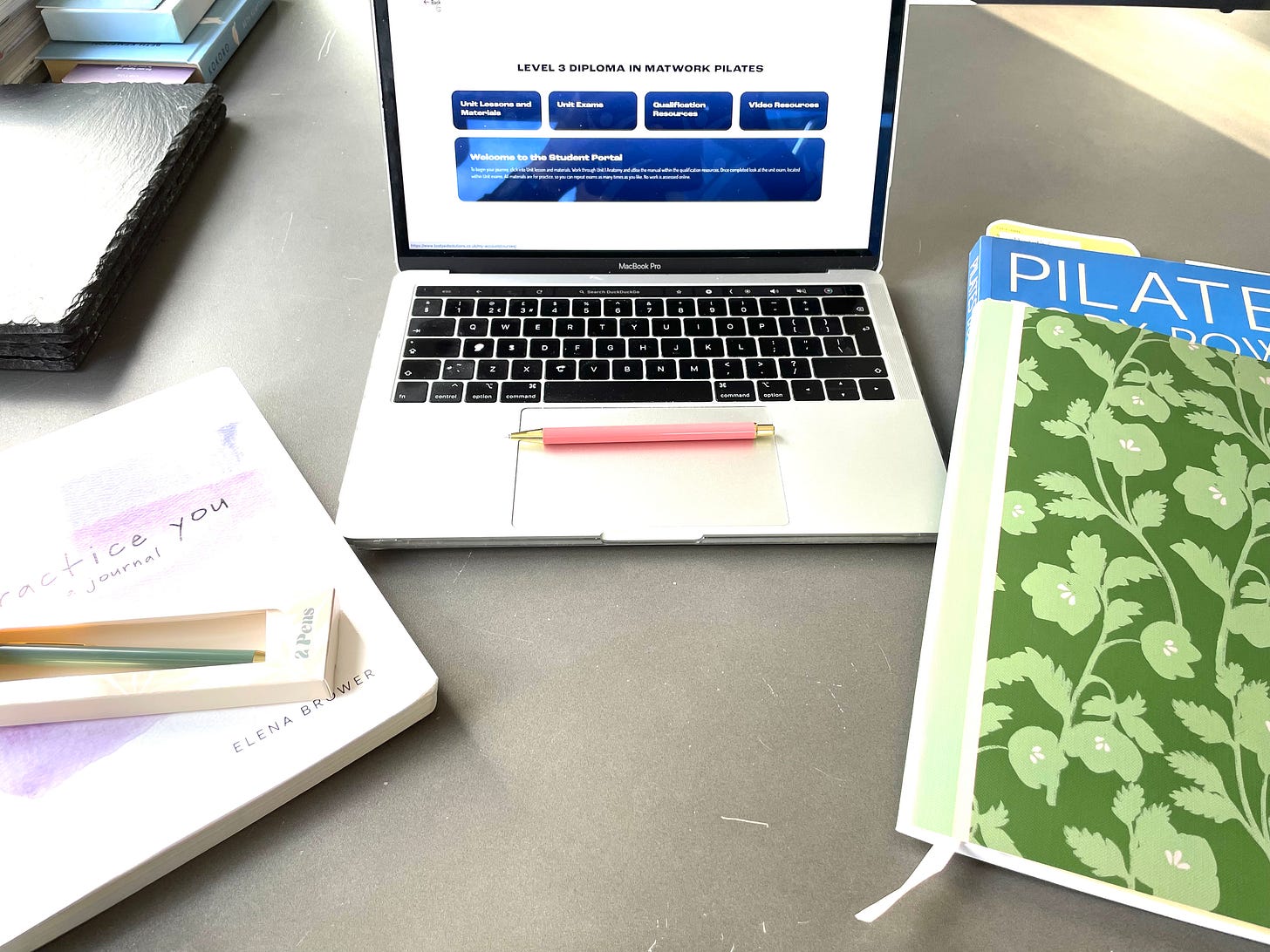


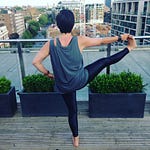
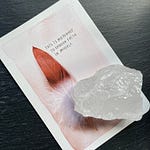




Share this post